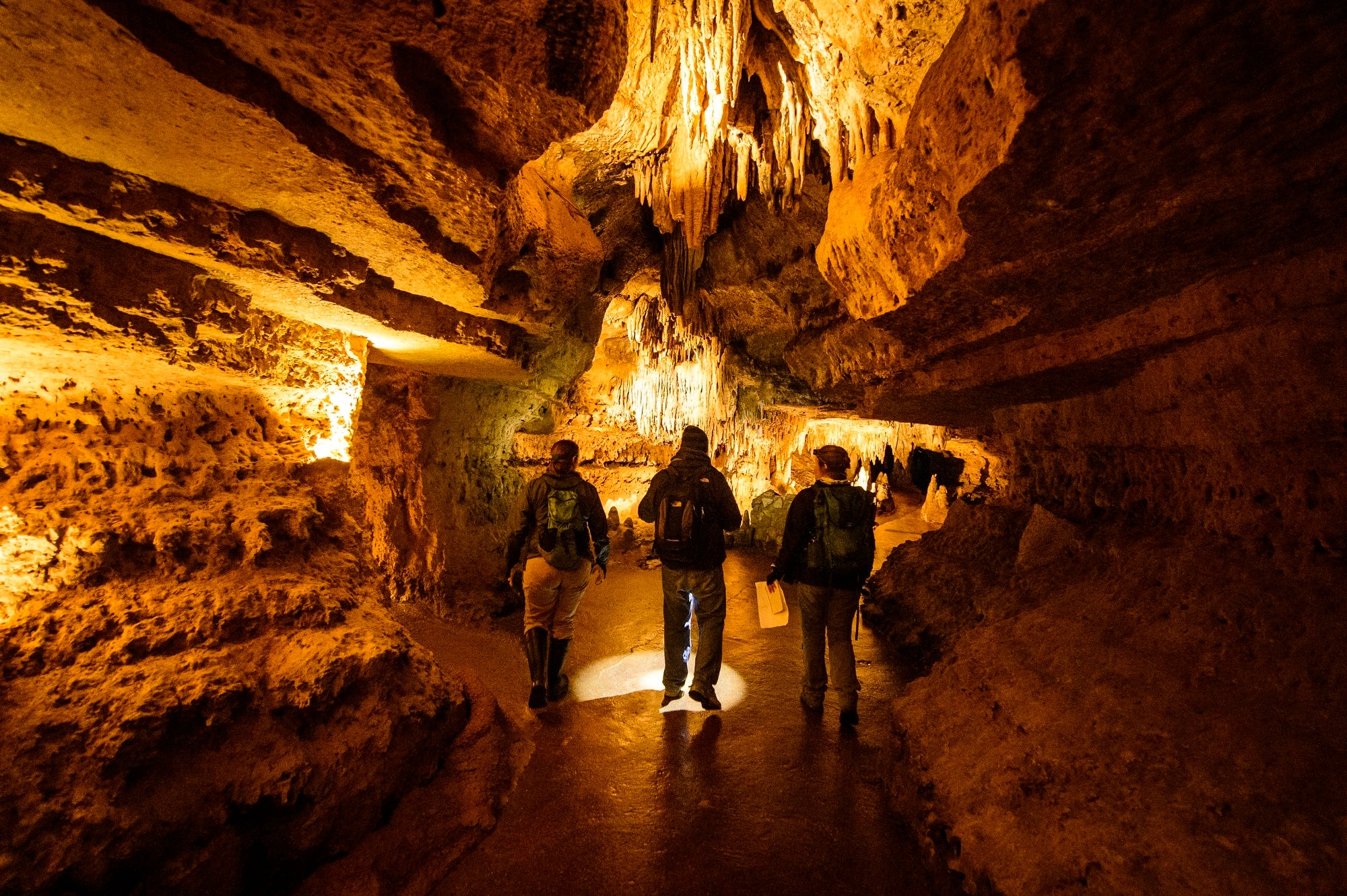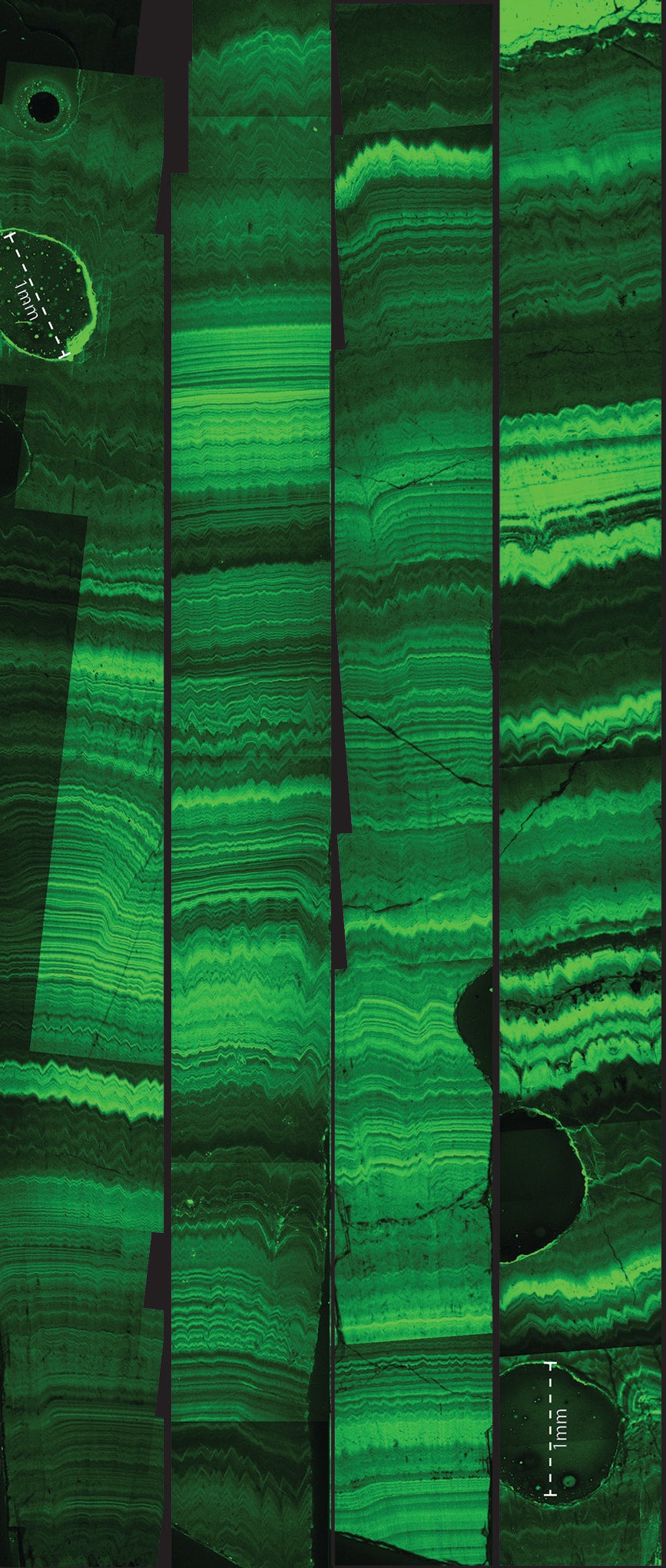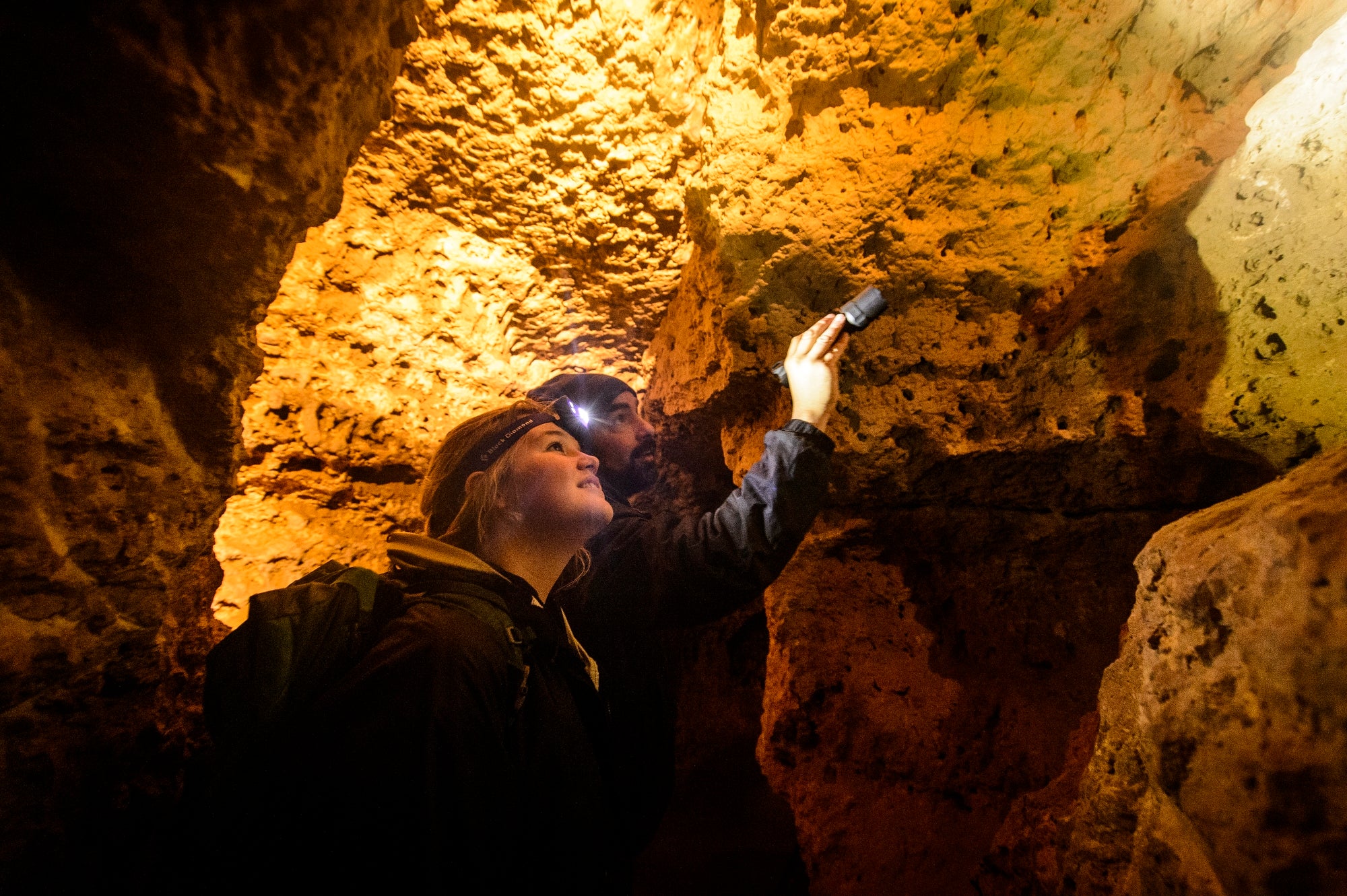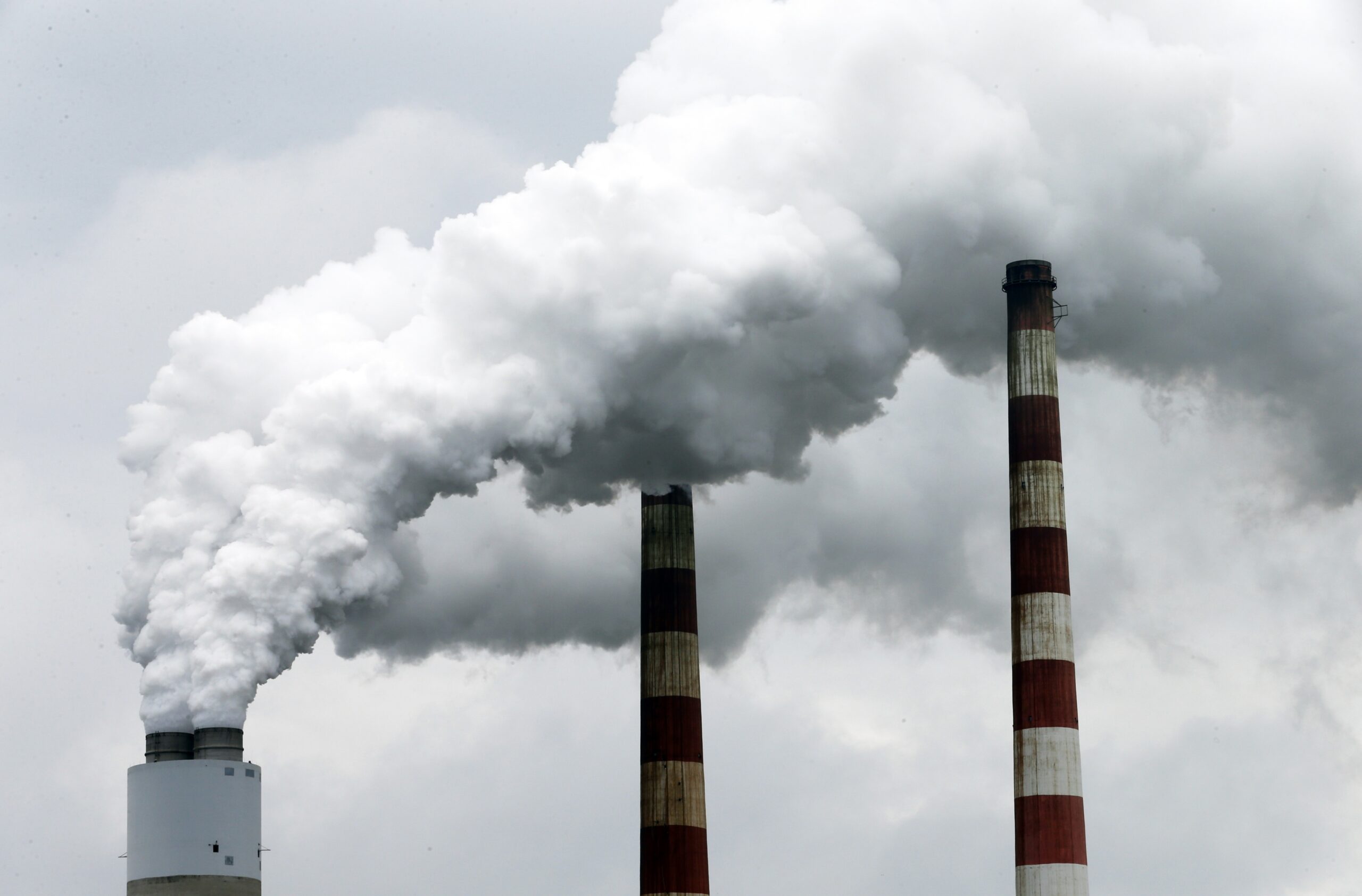Researchers with the University of Wisconsin-Madison say a stalagmite from Cave of the Mounds in southern Wisconsin holds clues about the impact of abrupt, global climate changes during the last ice age.
For the first time ever, researchers say there’s strong evidence that sudden, global warming events recorded via core samples from the Greenland Ice Sheet reached well into lower latitudes, specifically Wisconsin and the Midwest, between 48,000 and 68,000 years ago.
A team of UW-Madison scientists led by Cameron Batchelor removed a stalagmite about the length of a pinky finger and used chemical and physical analysis to detect telltale signs of sudden warming in the atmosphere. A paper on their research was published this month in the journal Nature Geoscience.
Stay informed on the latest news
Sign up for WPR’s email newsletter.
“This work really puts Wisconsin on the map in terms of showing that this region of the world is not immune to these abrupt climate change events,” Batchelor told Wisconsin Public Radio.

Batchelor said they used oxygen isotopes trapped in the stalagmite’s layers to show that temperatures in what is now Wisconsin rose by an average of around 18 degrees Fahrenheit within 10-year periods during the last ice age.
The findings are significant, she said, because erosion and the slow march of glaciers across Wisconsin destroyed any geologic evidence of localized climate impacts in Wisconsin and the upper Midwest.
“The stalagmites inside (Cave of the Mounds) are actually recording a continuous record because they’re not being disrupted by the ice sheets,” Batchelor said.
The team with UW-Madison was also able to determine that the precipitation that formed parts of the stalagmites in the Wisconsin cave came from the Gulf of Mexico. Batchelor said that offers more evidence of sudden warming in northern latitudes, drawing moisture northward into Wisconsin.

Because of differences in how warming events are analyzed and dated in samples from the Greenland Ice Sheet and the analysis of the stalagmite from Wisconsin, Batchelor said her team couldn’t definitively prove they were caused by the same global events. But, she said the evidence shows, with high certainty, the two examples happened within the same timeframe.
“There is no other reason we would see these abrupt climate events if they weren’t potentially linked to the events happening in Greenland,” Batchelor said.
Getting a better understanding of how Wisconsin and central North America were impacted by sudden climate change tens of thousands of years ago is vitally important, Batchelor said, because it’s happening again due to humans’ reliance on fossil fuels.
“Yes, the Earth has warmed in the past, and it has warmed relatively quickly,” Batchelor said. “But the truth is that the rate of warming that we are seeing today is unprecedented, and we need to act on it.”
Wisconsin Public Radio, © Copyright 2025, Board of Regents of the University of Wisconsin System and Wisconsin Educational Communications Board.

